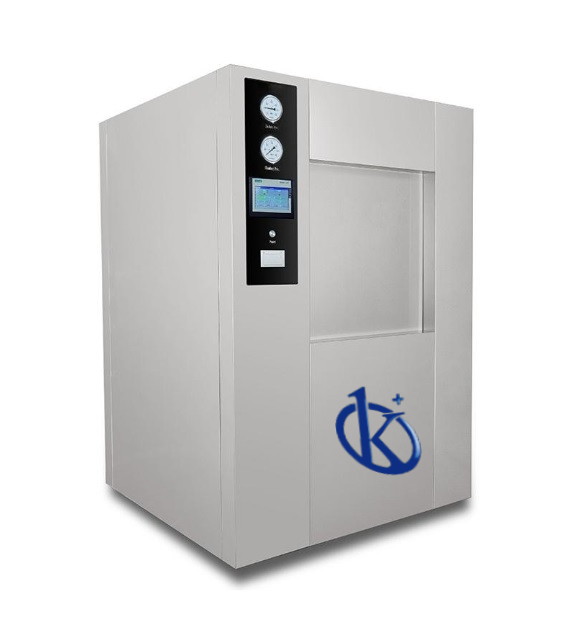Autoclaves have revolutionized the way laboratories, clinics, and hospitals perform sterilization. These machines, straight out of a science fiction movie, can handle tasks ranging from sterilizing medical and lab equipment to processing hazardous waste. But what exactly is an autoclave and why are they so crucial today?
Autoclaves are devices that use pressurized steam to eradicate any form of microorganism, including spores, from objects placed inside them. They operate using moist heat, which is more effective than dry heat in destroying these microscopic entities.
We understand that you need equipment that delivers maximum value to your laboratory. We invite you to visit https://kalstein.pl/category-product/laboratory-line/autoclaves-laboratory-line/ to immerse yourself in our universe of cutting-edge technology equipment. Our prices are competitive and accessible, we combine the convenience of online shopping with the guarantee of an exceptional product. Because you deserve the best, we create and offer top-tier laboratory equipment. Make your choice today, where science comes to life. https://kalstein.pl/
Features of Autoclaves
Every autoclave has its unique set of features, which can vary depending on the brand and model. However, there are common characteristics essential to these sterilization devices.
Undeniably, the most impressive feature of an autoclave is its ability to reach extremely high temperatures. Typically, an autoclave can achieve a maximum temperature of 121°C. Some models can even reach 134°C, allowing for a more thorough and faster sterilization. Another crucial feature is its capacity for pressure, which can reach up to 30 PSI in some models. This pressure is necessary to push the steam through the object being sterilized.
Why do Autoclaves cost this much?
The price of an autoclave might seem high at first glance. But remember – it’s not just a machine that creates heat and pressure. Autoclaves are precision instruments offering complete, safe, and efficient sterilization. Each piece is designed and calibrated to work together and deliver flawless results in each sterilization cycle. When purchasing an autoclave, you’re investing in quality, reliability, and peace of mind.
In addition, most modern autoclaves come with extra features like pre-programmed sterilization cycles, drying systems, and advanced safety systems.
Compare Autoclaves with similar products
Comparing autoclaves with other sterilization systems, we find that autoclaves are a superior choice. Unlike chemical or dry heat sterilizers, autoclaves don’t leave toxic residues and are more effective in destroying all types of microorganisms.
Compared to other brands, Kalstein stands out by offering high-quality autoclaves at competitive prices. Unlike brands like Steris, Tuttnauer and Priorclave, Kalstein provides a more diverse range of autoclaves.
Pros and Cons of Autoclaves
Autoclaves are invaluable tools across numerous fields, from medicine to research, due to their capability to provide complete and efficient sterilization. However, like any machine, they have their pros and cons.
|
Pros |
Cons |
|
Complete Sterilization |
Initial Cost |
|
Versatility |
Sterilization Time |
|
No Toxic Residues |
Regular Maintenance Required |
|
Safety |
Space |
|
Energy Efficiency |
Training Required |
|
Ease of Use |
Sensitive to Water Quality |
|
Durability |
|
|
Reasonable Maintenance |
Advantages of these Autoclaves
Besides their ability to deliver safe and complete sterilization, autoclaves have other advantages. Particularly, they are highly effective in infection control, which is vital in fields like medicine and research.
Additionally, autoclaves allow faster and more efficient sterilization compared to other methods. This not only boosts productivity but also reduces downtime and enhances overall efficiency. Thanks to their robust design and high-quality materials, autoclaves are durable equipment that can withstand heavy use in laboratory and clinical settings.
Other benefits of these Autoclaves
Being designed to provide extreme heat and pressure conditions, autoclaves can destroy even the most resilient life forms. This includes spores, notorious for their resistance to harsh conditions.
Also, autoclaves don’t just sterilize, but can also disinfect and clean objects. This makes them an ideal choice for processing medical and hazardous waste, thereby minimizing environmental and health risks.
Opinions about Autoclaves
Healthcare and research industry professionals often praise the efficacy and efficiency of autoclaves. Many find them to provide faster and more thorough sterilization compared to other methods. Moreover, autoclaves usually receive commendations for their ease of use and robustness.
Although some might bemoan the initial cost of an autoclave, many consider it a worthy investment, especially given its longevity and long-term performance.
Frequently Asked Questions
What type of objects can I sterilize in an autoclave?
You can sterilize a wide variety of objects in an autoclave, as long as they can endure the high temperatures and pressures. This includes laboratory and medical equipment, glass, metal, heat-resistant plastics, and more.
Do autoclaves leave any kind of residue?
No, autoclaves use steam for sterilization and leave no toxic residue, a clear advantage over other sterilization methods.
How long does a sterilization cycle in an autoclave take?
Sterilization time can vary depending on the load and the autoclave model, but generally ranges between 15 and 30 minutes.
Does the water I use in my autoclave matter?
Yes, it’s important to use distilled water in an autoclave to prevent the buildup of minerals that can affect its performance.
Do I need any kind of training to use an autoclave?
For safe and effective usage, it’s advisable for autoclave users to receive training on how to properly use and maintain the equipment.
Is the autoclave environmentally friendly?
Yes, autoclaves are environmentally friendly, as their sterilization method leaves no toxic residues.
Conclusions on these Autoclaves
In conclusion, autoclaves are essential devices in any medical, research, or laboratory setting. They are highly effective and efficient, delivering total and safe sterilization.
While they might have a high initial cost, their performance, durability, and long-term value make them a worthy investment. With so many benefits, the art of sterilization with autoclaves simply can’t be ignored.

